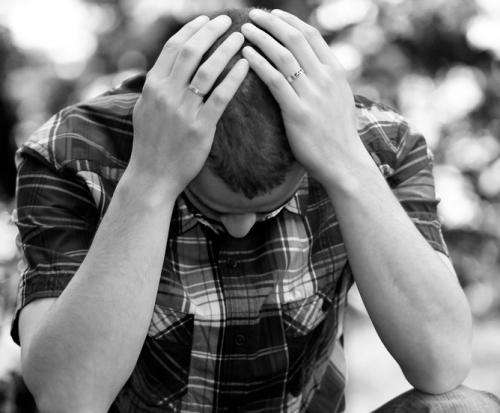Explainer: What is depression?

Many people know what it's like to feel sad or down from time to time. We can experience negative emotions due to many things – a bad day at work, a relationship break-up, a sad film, or just getting out of bed on the "wrong side". Sometimes we even say that we're feeling a bit "depressed". But what does that mean, and how can we tell when it's more than just a feeling?
Depression is more than the experience of sadness or stress. A depressive episode is defined as a period of two weeks or longer where the individual experiences persistent feelings of sadness or loss of pleasure, coupled with a range of other physical and psychological symptoms including fatigue, changes in sleep or appetite, feelings of guilt or worthlessness, difficulty concentrating or thoughts of death.
To be diagnosed with major depressive disorder, individuals must experience at least one depressive episode that disrupts their work, social or home life.
Depression is common in the community, with 12% of Australians experiencing major depressive disorder in their lifetime. More than 650,000 Australians have this experience in any 12-month period.
Because it's highly prevalent and can be significantly disabling, the World Health Organization reports that depression is the third highest cause of disease burden worldwide, with a greater burden on the community than heart disease. There are also high levels of overlap between depression and other common mental disorders, including anxiety and substance use disorders.
Unfortunately, only 35% of people with symptoms of mental health problems seek help. This may be because of difficulties identifying depression in the community due to a lack of knowledge or accessing care, and stigmatising attitudes towards depression.
Depression prevention programs that provide accessible treatments, increase knowledge and change negative attitudes are an important way to increase access to treatment and reduce the burden of depression.
Causes and risk factors
There's generally no single reason why an individual becomes depressed. There's a constellation of risk factors, including physiological, genetic, psychological, social and demographic influences.
Biological risk factors include having a family history of depression, suffering a long-term physical illness or injury, experiencing chronic pain, using illicit drugs or certain prescription medications, chronic sleep problems, or having a baby. Having experienced depression in the past is a risk factor for a further depressive episode.
Psychological risk factors for depression include having low self-esteem, or having a tendency to be self-critical. Demographic and social influences include being female (women are almost twice as likely to suffer from depression than men), stressful life events (such as relationship conflict or caring for someone with an illness), experiencing a difficult or abusive childhood, or being unemployed.
People differ greatly in the amount or type of risk factors they're exposed to or experience. And having several risk factors alone is not enough to trigger depression.
A combination of risk factors and the experience of stressful or adverse life events may prompt the onset of depression. The greater the number of risk factors that a person experiences, the more vulnerable they are to developing depression when stressful life events occur.
In contrast, those exposed to fewer risk factors are somewhat buffered, and may only develop depression when exposed to extreme levels of environmental stress.
Treatment and prevention
There are a number of effective treatments for depression. The most effective and widely used are cognitive-behavioural therapy and antidepressant medications.
Cognitive-behavioural therapy is a talking therapy that primarily aims to reduce negative thinking patterns, while antidepressant medications target brain chemicals thought to be implicated in depression.
There's also evidence that low-intensity cognitive-behavioural therapy combined with education about depression can prevent individuals from developing depression. To widen the reach of such prevention programs, internet therapy programs have been developed and shown to be effective in preventing depression. Australian researchers are at the forefront of developing e-mental health platforms to reduce the prevalence of depression and other mental disorders.
There is some evidence that lifestyle changes can also help to prevent depression in some people. Engaging in healthy behaviours, such as getting adequate sleep, avoiding substance use, taking vitamins or fish oil supplements, engaging in physical activity and healthy diet, have all been shown to have associations with reduced depression symptoms. But research continues to examine whether making changes in these areas can lead directly to the prevention of depression.
Future research
There are a number of promising research areas that are currently being explored. Researchers are investigating ways to make cognitive-behavioural therapy more effective through better understanding of the processes involved in recovery. And technology has improved the availability of online, mobile and computer-based treatments, so that people at risk of depression in under-served areas such as rural locations or developing countries can access evidence-based services.
Population-based research is leading to a better understanding of risk factors for depression and improvement in its early detection. Research on the biological and genetic bases of depression is resulting in continual refinement of physical and pharmacological treatments.
A more nuanced understanding of the treatment options that work best for specific individuals has great promise for allowing an individually tailored approach to treating and preventing depression.
This story is published courtesy of The Conversation (under Creative Commons-Attribution/No derivatives).
















